Today, history books reflect that Lee Harvey Oswald acted alone. Yet nearly half of the American public (and the world) are convinced that Oswald was indeed set-up as a patsy by a complex team that concocted a scheme with perhaps three shooters. Plus, "they" had the power and resources to set-up a profound, ever-lasting cover-up.
My heart screams out conspiracy. In 1976, I visited Dealey Plaza in Dallas. Fate drew me behind the fence on the grassy knoll...and its impossible to think that any serious gun-related attack wouldn't have included a shooter there. But on the other hand, my head has seen independent scientific proof that has disproved this common assertion.
In three days, (November 22nd), the dubious 49th anniversary of the Kennedy tragedy will be marked. However, I believe it would be better to wait till next year (the 50th anniversary) to really examine the case. So with that in mind, I say let's defer to what was considered the "crime of the century" prior to 1963.
Surprisingly, (to the uninitiated), the other crime of the century took place here in New Jersey, in 1932. Even stranger, (insert "IT'S A SMALL WORLD," sound track), the evil deed took place only a few miles from where my son Andrew goes to school, The College of New Jersey (TCNJ).
First, let's go back to May 20th and 21st in 1927. That's when Charles "Lucky Lindy" Lindbergh (1902-1974) rose from virtual obscurity as an air mail pilot to instantaneous world fame. He did it by being the first to solo his airplane (The Spirit of St. Louis) across the Atlantic Ocean (3600 miles) from Garden City, Long Island, New York to Paris France.
 |
| LINDBERGH'S ACCOMPLISHMENT EARNED HIM THE MEDAL OF HONOR...AMERICA'S HIGHEST MILITARY DECORATION. |
The whole world was enraptured. When the twenty-five year old native of Little Falls Wisconsin returned to the states, New York City honored his feat of heroism with a ticker tape parade.
 |
| IN THE LATE 1920's, CHARLES LINDBERGH WAS GIVEN ROCK STAR STATUS. HE WAS SO LOVED AND ADMIRED THAT HE WAS PROBABLY THE SINGLE MOST RECOGNIZED INDIVIDUAL ON THE PLANET. |
In the years that followed, Lindbergh capitalized on his renown by promoting and developing commercial aviation as well as air mail service. But his skyrocket to positive fame took a nosedive on March 1, 1932 when his first child (of thirteen), Charles A. Lindbergh Jr., was abducted from his East Amwell New Jersey farmhouse, (near Hopewell).
 |
| ALL THE WORLD'S SYMPATHIES WENT OUT TO THE LINDBERGH'S |
Two months later, Lindbergh's "Lucky Lindy" nickname lost its cleverness forever when the body of his 20-month-old toddler was discovered a short distance from their house. The cause of death was determined to be a massive skull fracture.
Over the next two-plus years, an investigation led to the arrest of German-born, Bruno Richard Hauptmann.
Two years after the Lindbergh's paid the $50,000.00 ransom, (September 1934), New Jersey and New York police together with the FBI followed a string of evidence to Hauptmann's residence. A high speed car chase through the Bronx ensued until the accused was apprehended.
Hauptmann was dubbed, "The Most Hated Man in the World," as the court proceedings began in Flemington New Jersey. Journalist H. L. Mencken called the trial, "The biggest story since the resurrection."
The damning evidence included:
- Some of the marked ransom money ($14,590.00) was found in Hauptmann's garage.
- Handwriting samples matched the ransom note and Hauptmann's pre-trial specimens.
- The wooden, homemade ladder used to reach the second floor window of the baby's room was consistent with the slats from Hauptmann's attic floor.
- The ransom intermediary's phone number was scribbled into Hauptmann's closet wall.
- Although Hauptmann was largely unemployed at the time, he had recently bought a $400.00 radio and had enough money to send his wife to Germany.
- Eye-witnesses testified that they saw him in East Amwell in the days before the kidnapping.
- Local merchants identified him as using marked ransom money (rare gold certificates).
- He was absent from work the day of the crime and quit two days later.
Six weeks later, the jury brought in a verdict of guilty. The judge sentenced Bruno Richard Hauptmann to death on March 18, 1935. Several delays later, on April 3, 1936 at the New Jersey State Prison in Trenton, Hauptmann was placed in "Old Smokey" and electrocuted. His last words through an interpreter were, "I'm absolutely innocent of the crime with which I am burdened."
Throughout the years, there has been much doubt as to Hauptmann's guilt. Similar to the polarization of the John F. Kennedy assassination, many people feel that the universal popularity of Charles Lindbergh and the rising anti-German sentiments caused over-zealous, "concerned" citizens to fabricate damning testimony. It was also asserted that the police beat Hauptmann while he was in custody and intimidated other witnesses to contaminate evidence. Similarly, in the Kennedy case Jack Ruby (considered an unreliable and self-serving source) said of killing Oswald, "It helped the city of Dallas redeem itself in the eyes of the public and that Oswald's death would spare Mrs. Kennedy the discomfiture of coming back for a trail."
In the Lindbergh trial some of the tampering included;
- Lying about the wood from the homemade ladder coming from Hauptmann's attic.
- The Superintendent of the New Jersey Police, Norman Schwarzkopf, Sr., (father of Desert Storm General, Norman Schwarzkopf, Jr.), refused to make public that Hauptmann's fingerprints were not on the ladder. Please note that Schwarzkopf's name (in small print) appears on the "wanted" poster (above) as a contact person.
- A reporter admitted that he scrawled the ransom deliveryman's phone number in Hauptmann's closet.
- One eye-witness who positively identified him near the Lindbergh estate was legally blind.
- It was also asserted that Hauptmann's time card at work was doctored and that coworkers statements that he was at work were ignored.
On numerous occasions, even after fifty years, Mrs. Hauptmann unsuccessfully lobbied to have the verdict reversed, to clear her husband's name. One of her last pleas (1990) was denied by NJ Governor, James Florio, (one of the few notable TCNJ graduates I ever heard of).
Charles Lindbergh, after the trial, relieved the pressure and unwanted day-to-day notoriety by relocating (hiding) his family to Europe. In 1939, they returned. In the early years of WWII, he was an outspoken advocate of keeping the U. S. out of the war. But after Pearl Harbor, he changed his mind and flew many combat missions in the Pacific.
Both sides of the puzzling Lindbergh case have been depicted in books and movies. Either way, like Kennedy, the deeper you look, the harder it becomes to decide what is true. The story only gets sadder.
*
Special thanks to NJPHIL and SKIP for reminding me of Central New Jersey's role in history. For instance, General George Washington's daring 1776 crossing of the Delaware River happened in nearby Washington Crossing NJ, (near New Hope PA).
 |
| EMANUEL LEUTZE'S 1851 OIL PAINTING OF THE DECEMBER 25th AND 26th CROSSING, IN THE DEAD OF WINTER, PRIOR TO THE AMERICAN SURPRISE ATTACK ON THE HESSIAN FORCES IN TRENTON. |
In 1916, three shark attacks killed four people, Beach Haven (July 1st), Spring Lake (July 6th) and Matawan Creek (July 12th).
Oh the humanity! Lest we forget Lakehurst New Jersey (1936) and the ill-fated zeppelin Hindenburg. This lethal, fiery explosion with heavy political implications was first disaster broadcast on live radio.
Three years later, the radio again played a pivotal role in rattling a lot of people. That's when the 1938 Halloween-themed radio program, "THE WAR OF THE WORLD'S" was broadcast.
See you next year with some illuminating commentary on the Kennedy assassination.





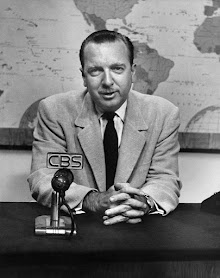








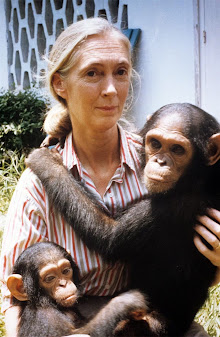
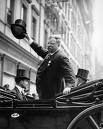



































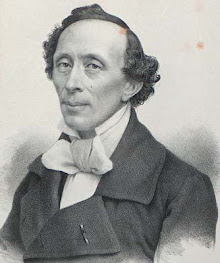


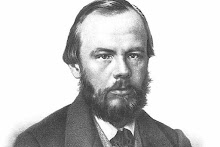










































































































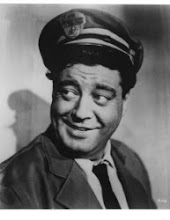
















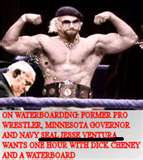




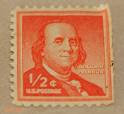



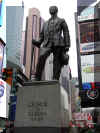





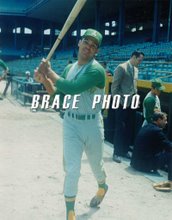



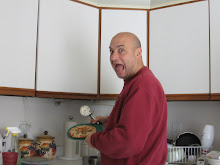
2 comments:
A good story uniting Kennedy, the pre-Kennedy crime of the century, Lindbergh (who wasn't as universally beloved as you may think) and the magical allure of the state of New Jersey. WELL DONE ! --- SLW
Nice post. I stumbled on your weblog and enjoyed several articles. In this one, it's hard to believe it's 49 years. Which makes it a grim reminder that a prominent man with money, Secret Service protection plus the FBI, CIA and the US military can be gunned down in broad daylight. So, unless you believe the fiction of the Warren Report, we still don't know who shot JFK in Dallas. Or as Michael Cordeleone said, "If history has taught us anything, you can kill anyone!" --- S in NY
Post a Comment